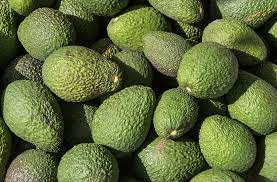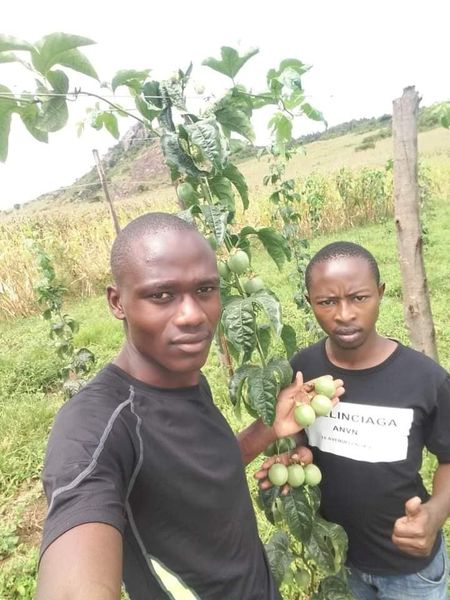
Hass avocado farmers in Kenya can earn over two times as compared to their peers growing other varieties such as feurte, keitt, and pinkerton among others due to the variety’s high demand in the international market.
can Data from Kenya Plant Health Inspectorate Service (Kephis) indicates that, in 2018-2019 financial year, the country exported around 80,000 tons of avocados, valued at approximately Sh10bn which is double the amount exported in 2016. Hass variety represented 70 per cent, Fuerte 25 per cent, and the local Kenyan Kienyeji, which is also a known as green-skin variety, five per cent.
To this end, the national government and some county governments have in the recent past encouraged farmers to dive in this lucrative business with a keen interest on Hass avocados. Farmers in the past had been producing the Kienyeji and the fuerte avocados which don’t fetch good prices in the market.
Hass is in high demand compared to other varieties because of their nutritional value, for instant, two or three slices of Hass avocado contain 4.6 grams of fat and the same portion of a regular avocado contains an estimate of three grams of fat.
Further, the Hass avocado has a higher shelf life due to its rough skin compared to other varieties
For these reasons, Hass avocado fetches good prices in the market with farmers selling at Sh10 per fruit plus annual bonus from Kakuzi compared to three shilling for fuerte.
RELATED CONTENT: Government launches Hass Avocado farming in Nyamira
Private players in the sector are also not left behind in supporting farmers to grow Hass avocadoes. Fair Trade Enterprises Limited, a social enterprise fresh produce exporter has been contracting farmers to grow the variety.
According to Bernard Kimutai, an agronomist at the firm, Hass avocadoes, especially the grafted ones take 3-4 years to flourish and can bear 1,000 fruits per tree per year; the latter takes about six years to mature.
“Other than the numerous benefits, the variety takes less space to grow in allowing farmers with small pieces of land to gainfully participate in this business. Farmers can also diversify their agricultural activities as it can grow together with other plants without taking much space thus ensuring cash flow throughout the year for the farmers.”
RELATED CONTENT: Government bans avocado exports on shortages
Government support
Another reason why farmers should plant Hass avocado is the overwhelming support from the national government as it has negotiated with companies like Kakuzi to buy directly from farmers thereby eliminating the middlemen who have been a thorn on the farmers’ skin.
Further, the national government through KEPHIS has been actively involved in monitoring and educating farmers and exporters on global market standards and regulations compliance.
May last year, the Kenyan government signed a trade deal with China during President Uhuru Kenyatta visit to china where Kenya will be exporting frozen Hass avocado to China. If implemented, 1.5 billion Chinese consumers will take in more than 40 per cent of Kenya avocado produce.
Earlier this month, Trade Principle Secretary Chris Kiptoo announced that China, after negotiation with the national government has reduced the levies on Kenyan avocados from 30% to seven percent which will enable many farmers to export with no much strain.
County governments such as Murang’a and Nyeri offer free grafted Hass avocados seedlings to farmers and give extension services.
Murang’a Governor Mwangi Wa Iria in 2019 said his government will provide farmers with 1m hass avocado seedlings annually with an aim of maximizing on production by 2025 as reports indicates that the County earns Sh2.5billion from hass fruits annually. Further, the county has grouped 200,000 farmers into a giant County Hass avocado producer group in a bid to increase their bargaining power in the market.
RELATED CONTENT: Fresh Produce exporter contracting farmers to supply Hass and Fuerte avocado varieties
According to Nyeri CEC Agriculture James wachihi, the county government distributed 81,000 and 52,602 Kephis and Horticultural Crop Directorate (HCD} certified Hass avocado seedlings in 2018 and 2019 respectively. To further support the farmers, the county government organized a farmers’ workshop on hass avocado on 19th June 2019 to equip farmers with the necessary skills on profitable avocado farming.
With players like the Avocado Society of Kenya, a member of World Avocado Congress, farmers who had no previous connection in the market can now connect with other players in this sectors such as exporters, others growers and value –chain players which can facilitate knowledge transfer among stakeholders.
The society also facilitates workshops for farmers and exporters and offers subsidized hass tree seedlings to its registered farmers
With the support from both levels of governments and other organizations coupled with readily available markets, many farmers have ventured in this venture evening attracting counties that didn’t practice this kind of farming before such as Uasin Gishu County which is educating farmers on the need to diversify agriculture by growing high value crops with avocado, coffee and macadamia.
Avocado farming is mainly done in Nyeri, Murang’a, Meru,Kiambu ,Kisii,Naivasha Nakuru and Eldoret.
The countries that import Kenya avocados are mainly in Europe, namely France, Netherlands, Germany, Spain, Belgium and Russia. There is also a substantial market for Kenya avocado exports in the Middle East especially in UAE, Bahrain, Qatar, Kuwait, Lebanon and Egypt. Other upcoming markets include Singapore and Hong Kong.
RELATED CONTENT: Dubai fresh produce importer looking for avocado, orange and dragon fruits suppliers
Kenya produces 115,000 metric tons of avocados annually and 70% produced by the small scale farmers with three quarter of it being exported.
This drastic change has been mainly attributed to technological advances called ‘refeer’ by Maersk lines which has made it possible to transport the Kenyan avocados beyond the middle east to the European market.
According to a 2019 half year survey shared at the World Avocado Congress in Columbia September 2019, Kenya has overtaken South Africa in the production of the fruit. Kenya grows a variety of avocados namely the Hass, Fuerte , indigenous varieties (Kienyeji), and the Piketon although in small quantities.
The survey also ranked Kenya as seventh in the list of leading exporters of avocado in 2018 having got $ 118 million (Sh11.8 billion) in export earnings. The list ranked Mexico first with $2.4 billion, followed by Netherlands ($ 733.8 billion), Peru ($ 722.8m) in third, Spain ($ 346 m), Chile ($ 323.2 m), the USA ($ 179 m).


















